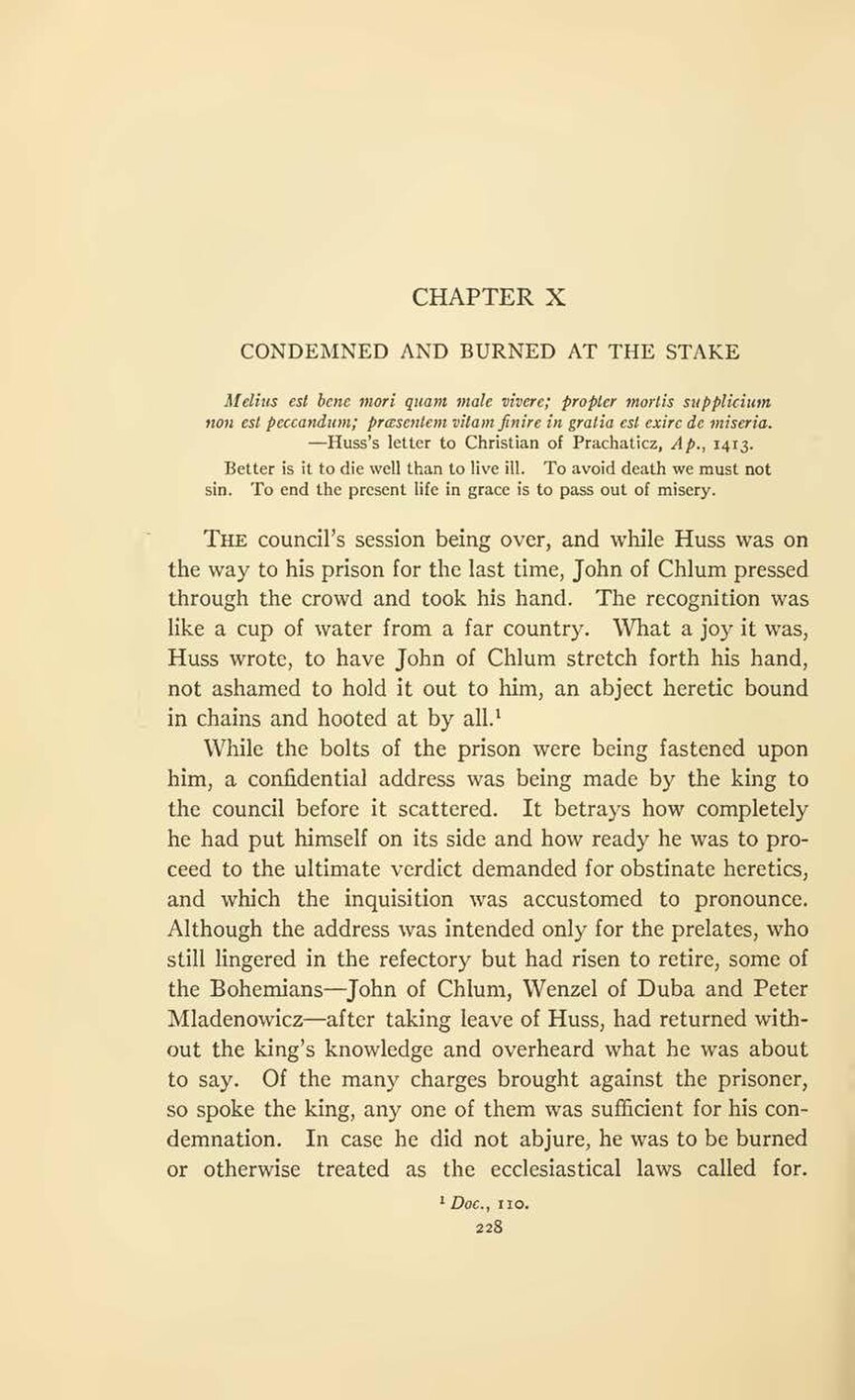CHAPTER X
CONDEMNED AND BURNED AT THE STAKE
Melius est bene mori quam male vivere; propter mortis supplicium non est peccandum; præsentem vitam finire in gratia est exire de miseria.
Better is it to die well than to live ill. To avoid death we must not sin. To end the present life in grace is to pass out of misery.
The council’s session being over, and while Huss was on the way to his prison for the last time, John of Chlum pressed through the crowd and took his hand. The recognition was like a cup of water from a far country. What a joy it was, Huss wrote, to have John of Chlum stretch forth his hand, not ashamed to hold it out to him, an abject heretic bound in chains and hooted at by all.[1]
While the bolts of the prison were being fastened upon him, a confidential address was being made by the king to the council before it scattered. It betrays how completely he had put himself on its side and how ready he was to proceed to the ultimate verdict demanded for obstinate heretics, and which the inquisition was accustomed to pronounce. Although the address was intended only for the prelates, who still lingered in the refectory but had risen to retire, some of the Bohemians—John of Chlum, Wenzel of Duba and Peter Mladenowicz—after taking leave of Huss, had returned without the king’s knowledge and overheard what he was about to say. Of the many charges brought against the prisoner, so spoke the king, any one of them was sufficient for his condemnation. In case he did not abjure, he was to be burned or otherwise treated as the ecclesiastical laws called for.
- ↑ Doc., 110.
228
